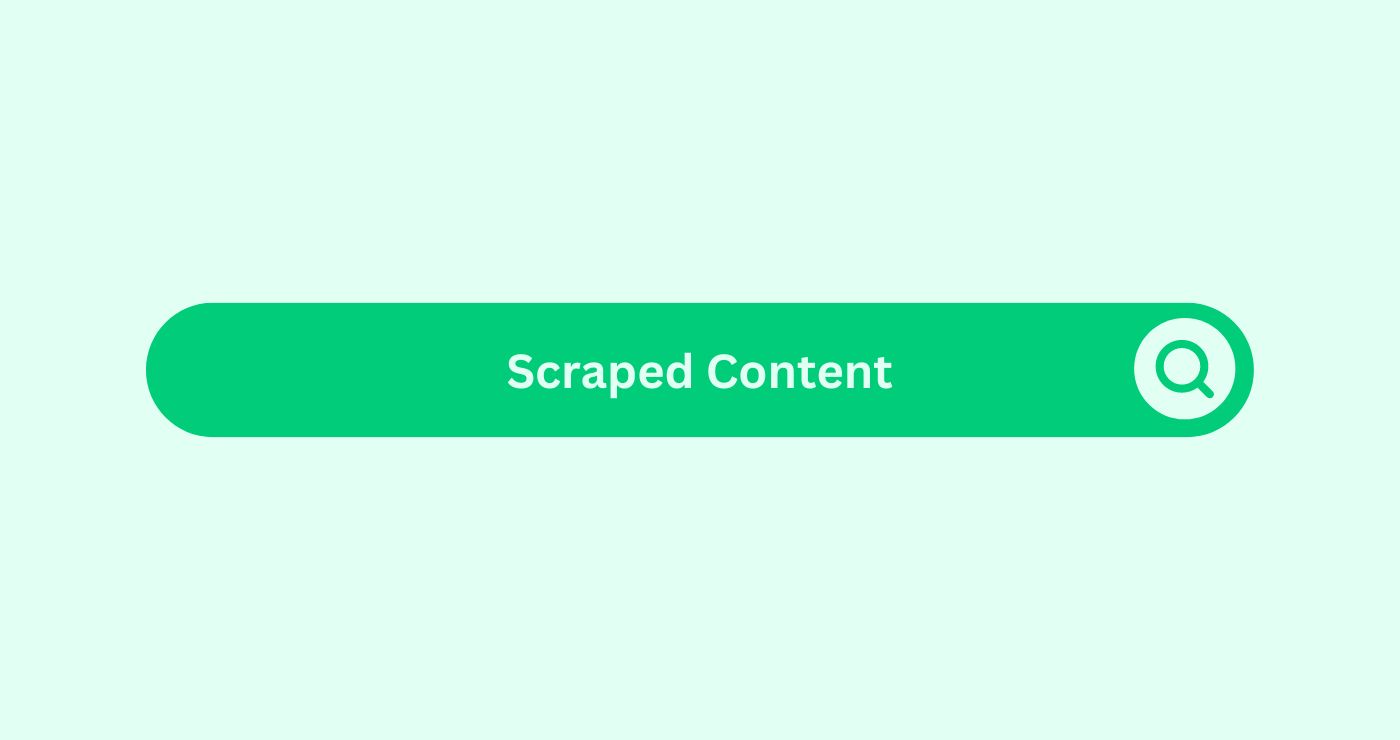Definition
Scraped content refers to the unauthorized copying or extraction of content from other websites without proper attribution or permission. In the context of SEO (Search Engine Optimization), scraped content can have negative implications for both the original content creators and the websites hostingDefinition Hosting refers to the service of storing and main... More the scraped material. It often involves automated botsDefinition Bots, short for robots, in the context of SEO, re... More or scripts that systematically crawl web pages to extract text, images, or other media, which are then republished elsewhere without the consent of the original authors or copyright holders. Scraped content is typically used to populate websites with minimal effort, but it can leadWhat is Lead? Definition A Lead in the context of SEO refers... More to legal issues, penalties from search engines, and damage to reputations.
How you can use Scraped Content
Scraped content should not be used in ethical SEO practices. However, for illustrative purposes, suppose a website owner wants to populate their site quickly with articles related to a specific niche but lacks the resources to produce original content. In that case, they might resort to scraping articles from other websites and republishing them on their own site. While this approach may seem convenient in the short term, it violates copyright laws and ethical standards, potentially leading to legal consequences and reputation damage. Instead, website owners should focus on creating high-quality, original content that provides value to their audienceDefinition The term "Audience" refers to the group of indivi... More and builds trust with search engines.
Formula or Calculation
There is no specific formula or calculation associated with scraped content. However, detecting scraped content often involves comparing the textual and structural similarities between multiple web pages. Advanced algorithms and tools can analyze patterns, metadata, and content attributes to identify instances of scraped content across the web. Website owners and content creators can also utilize tools such as Copyscape or Google’s Duplicate ContentDefinition Duplicate content in the SEO space refers to iden... More Checker to identify and address scraped content issues proactively.
Key Takeaways
- Avoid using scraped content in SEO strategies, as it violates copyright laws and ethical standards.
- Focus on creating original, high-quality content that adds value to your website and audienceDefinition The term "Audience" refers to the group of indivi... More.
- Regularly monitor your website’s content for instances of scraping using specialized tools and algorithms.
- Take legal action against websites that scrape your content without permission, if necessary, to protect your intellectual property rights.
- Educate your team or clients about the risks and consequences of using scraped content in SEO efforts and emphasize the importance of ethical content practices.
FAQs
What is scraped content, and why is it problematic for SEO?
Scraped content refers to unauthorized copying of content from other websites, which can leadWhat is Lead? Definition A Lead in the context of SEO refers... More to legal issues, penalties from search engines, and reputation damage.
How can I tell if my website's content has been scraped by another site?
You can use tools like Copyscape or Google's Duplicate ContentDefinition Duplicate content in the SEO space refers to iden... More Checker to identify instances of scraped content across the web.
Can scraped content negatively impact my website's search engine rankings?
Yes, search engines may penalize websites that host scraped content, as it violates their guidelines for originality and quality.
What should I do if I discover scraped content on my website?
Take immediate action to remove or properly attribute the scraped content, and consider legal action against the infringing website if necessary.
How can I protect my website from scraping?
Implement measures such as using CAPTCHA, restricting access to sensitive pages, and monitoring serverDefinition A Server in the SEO space refers to a computer sy... More logs for suspicious activity to deter scraping attempts.
Is it ever acceptable to use scraped content?
No, using scraped content violates copyright laws and ethical standards, and it can have severe consequences for your website's reputation and search engine rankings.
Can I use scraped content if I give credit to the original source?
Giving credit to the original source does not absolve you from copyright infringement. Always obtain permission before republishing content from other websites.
Can I automate the process of detecting scraped content on my website?
Yes, you can use specialized tools and algorithms to automate the detection of scraped content and take appropriate action to address it.
What legal recourse do I have if someone scrapes my website's content?
You can pursue legal action against the infringing party for copyright infringement, seeking damages and removal of the scraped content.
How can I educate my team or clients about the risks of using scraped content in SEO?
Provide training on copyright laws, ethical content practices, and the potential consequences of using scraped content, emphasizing the importance of originality and integrity in SEO strategies.




